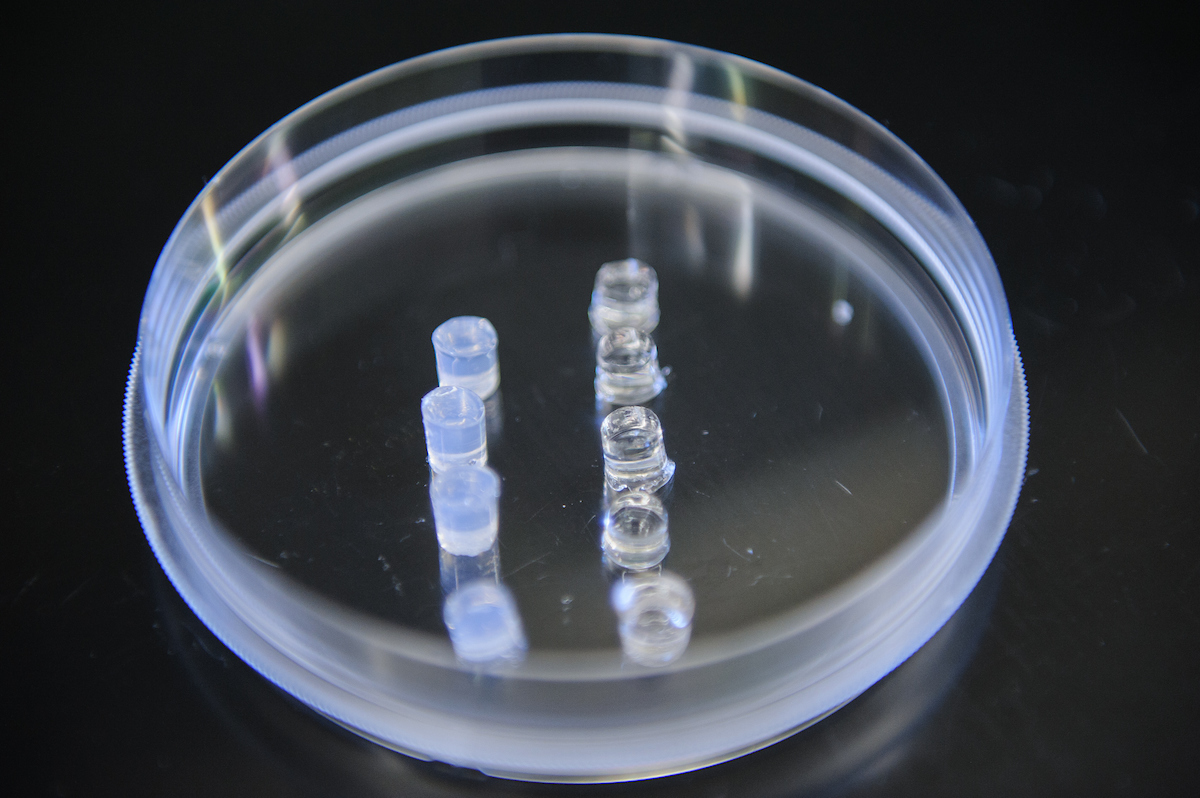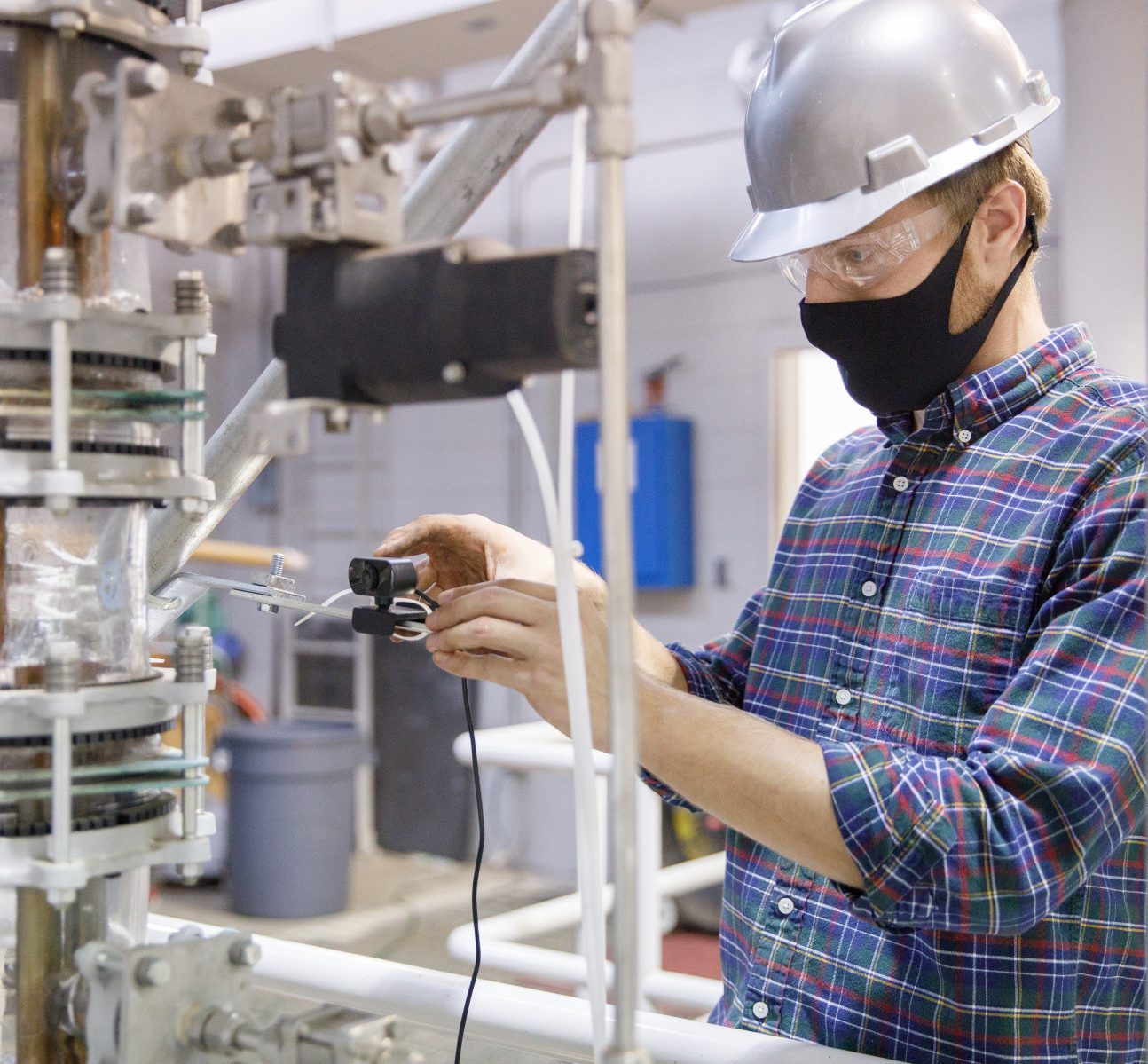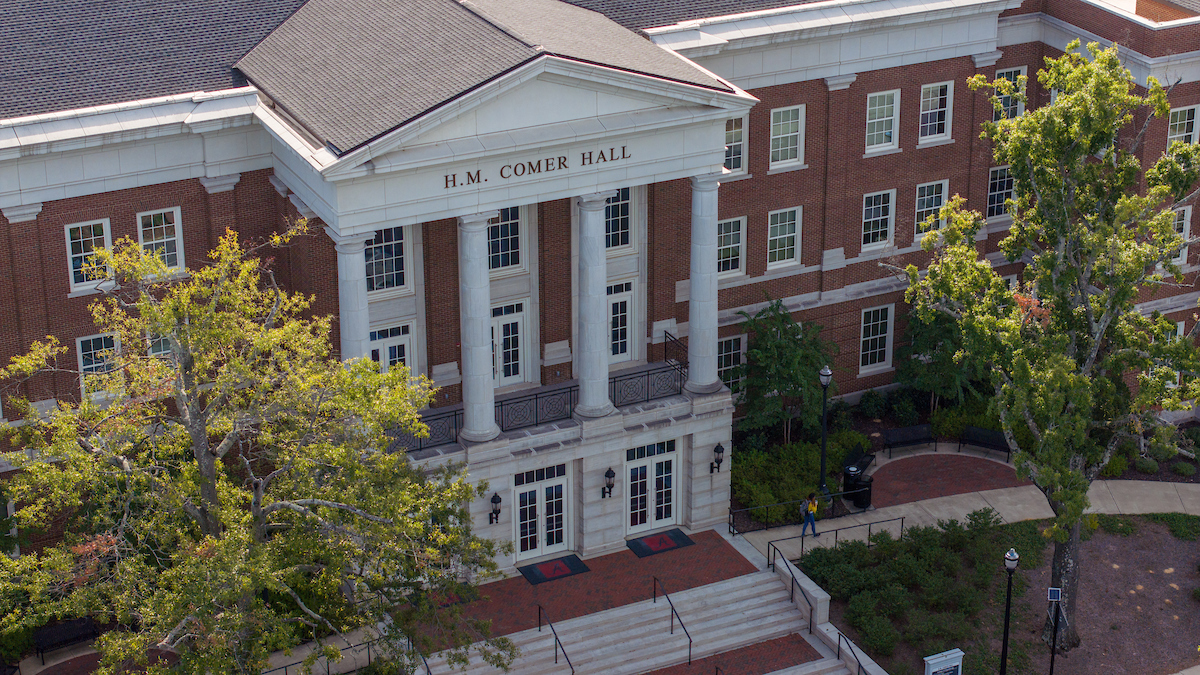
Graduate
Chemical engineering provides students with real-world experience through laboratory classes, hands-on operation of pilot scale equipment, and research projects that result in clean energy production and medical applications.
Degrees
Applicants for graduate work in chemical and biological engineering must apply for admission to UA’s Graduate School.
Please refer to the Graduate Catalog for specific admission requirements.
Graduate Application Deadlines
| Domestic & International | |
|---|---|
| Fall – February 1 (Priority); May 1 (Final) | |
| Spring – July 15 (Priority); September 15 (Final) | |
| Summer – November 1 (Priority); January 1 (Final) |
For additional information about chemical engineering graduate programs, contact Dr. Yuping Bao.


Graduate Admissions
Applicants for graduate work in chemical and biological engineering must apply for admission to UA’s Graduate School. Regular admission may be granted to applicants who have a chemical engineering degree, a Graduate Record Examination general test score of 300 or higher, and an overall GPA above 3.0 on a 4.0 scale. Applicants from related academic programs (chemistry, biochemical engineering, etc.) will also be considered.
Conditional admission may be granted to applicants who do not meet these requirements, for example those who have degrees in related fields or a GPA below 3.0. International students must have a TOEFL score of 550 or higher (or 79 on the iBT, or 6.5 on the IELTS or 59 on PTE) for the consideration of admission to the master’s degree programs and for consideration of admission to the doctoral program. GRE Verbal and Analytical Writing scores must be consistent with the international applicant’s TOEFL score.
Funding Opportunities
About Us
Research Areas
Research efforts are concentrated in, but not limited to, biotechnology; computational; polymers and soft materials; electronic materials and devices; and energy and the environment.
- “Green” Chemistry
- 3‐D Printing
- Advanced Materials
- Advanced Polymers and Materials
- Algae Cultivation and Algal Biomass Utilization
- Antibody-Drug Conjugates
- Assembly of Nanomaterials
- Bio/Nanosensors
- Biochemical Engineering for Production of Chemicals
- Biocompatibility and toxicology of nanoparticles
- Bioengineering
- Biomaterials
- Block Copolymers
- Catalysis
- Cell‐Material Interactions
- CO2 Capture Processes
- Computational Screening of CO2 Solvents
- Conjugated Polymers
- Controlled Synthesis
- Drug Delivery
- Drug Discovery
- Drug Resistance
- Electrochemical Engineering
- Electrochemical Engineering for Nanomaterials
- Environmental Catalysis Modeling
- Environmental Remediation
- Fuels
- Functional Material Interfaces for Soft Robotics
- Functionalized Materials for Separation and Catalysis
- Functionalized Membranes for Water Purification
- Green Cosmetics
- High Temperature Coatings
- In‐situ IR Spectroscopy of Thin Film Deposition
- Infrared Spectroscopy
- Interfacial Phenomena
- Intravaginal Rings for (Trans)mucosal Delivery of Drugs
- Ionic Liquids
- Magnetic Hyperthermia
- Manufacturing Cost Modeling
- Materials Characterization
- Mechanical Behavior
- Medical and Health Properties of Berries and Berry Extracts
- Membrane Fouling
- Metabolic Engineering
- Metals
- Microbicides
- Microchannel Devices
- Molecular Sieves
- Mucoadhesive Gels
- Nanodevices
- Nanofibers
- Nanomaterials
- Nanostructures
- Nanotherapeutics
- Natural Products
- Oncology
- Oxidation
- Pharmaceuticals
- Photobioreactor Design
- Polymer Templating
- Polymers
- Process Control
- Process Intensification
- Reaction Engineering
- Sensing
- Simulations of Nanomaterials
- Single-use Bioprocessing Films
- Soil Remediation
- Stretchable Electronics
- Surface Chemistry
- Surface Engineering
- Surface Science
- Surface/Interfacial Engineering
- Synthesis and Characterization of Inorganic Solids
- Synthetic Biology
- Thermodynamics
- Thin-Films
- Tissue Engineering
- Toxicological Evaluation of Novel Materials
- Translational Medicine
- Transport Phenomena in Polymeric Systems
- Tumor Microenvironment
- Vaccines
- Vibrational Spectroscopy
- Water
- Water Treatment
- Wearable Electronics

SEMINARS
Spring 2025 Department of Chemical and Biological Engineering Seminar Series
Time: 11:00 AM to 11:50 AM, Thursdays, Central Time
Location: 1026 H.M. Comer
Contact: H. Hohyun Sun; hsun36@ua.edu ChBE office: (205) 348-9140
| Date | Speaker, University/Institute | Title |
|---|---|---|
| Thursday, August 21, 2025 | Dr. Yuping Bao, UA | Graduate Program Overview |
| Thursday, August 28, 2025 | Peter Kofinas, U Maryland | Functional Polymers for Low Temperature Lithium-Ion Batteries and Anti-Adhesion Biomaterials |
| Thursday, September 4, 2025 | Steven Wrenn, Virginia Tech | Bursting Bubbles, Bio-colloids, and Bilayers |
| Thursday, September 11, 2025 | Rajamani Gounder, Purdue | Dynamic Interactions Between Copper Active Sites in Zeolites During NOx Pollution Abatement Catalysis |
| Thursday, September 18, 2025 | Chinedum Osuji, U of Pennsylvannia | Perfecting Structural Order and Controlling Mass Transport in Nanostructured Soft Materials |
| Thursday, September 25, 2025 | Dohyung Kim, U of Pennyslvannia | Heterogeneities in Chemical Activation and Catalytic Transformations |
| Thursday, October 2, 2025 | Dr. Gennady Gor, New Jersey Institute of Technology | Tiny Pores, Huge Moduli: Probing Nanoporous Materials with Ultrasound and Molecular Modeling |
| Thursday, October 9, 2025 | Nian Liu, Georgia Tech | Nano- and Microscale Material and Reactor Engineering for Electrochemical Energy Storage |
| Thursday, October 16, 2025 | Carl Laird, Carnegie Mellon University | Systems, Surrogates, Solutions: Optimization and Machine Learning for Decision-Making at Scale |
| Thursday, October 23, 2025 | Todd Przybycien, Rensselaer Polytechnic Institute (RPI) | Sustainable Production of Therapeutic Monoclonal Antibodies |
| Thursday, October 30, 2025 | Jai Hyun Koh, KIST | Ion-conducting polymers for selective CO2 conversion to chemicals and fuels |
| Thursday, November 20, 2025 | Christos Maravelias, Princeton | Systems Engineering for Renewable Energy System Design and Operation |
| Thursday, December 4, 2025 | David Nielsen, Arizona State University | Towards carbon efficient and carbon negative chemical production using ‘microbial cell factories’ |